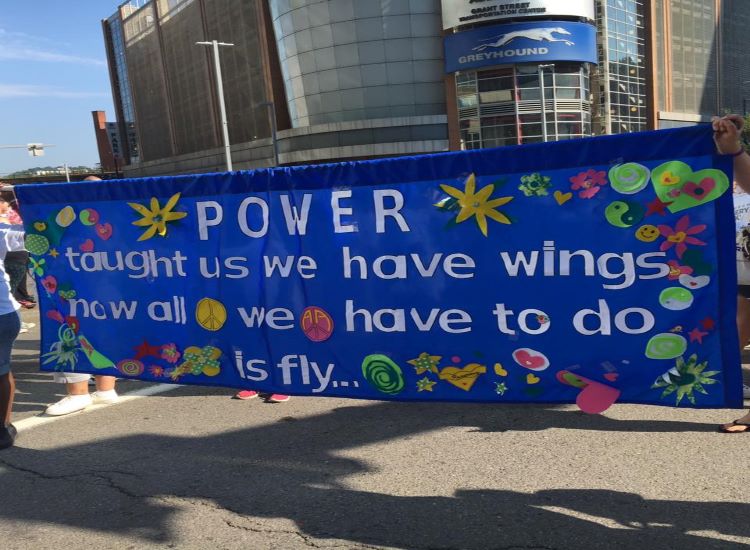POWER continues helping people battling addiction during the pandemic. The need is greater than ever.


In 2004, Deni Rust had a 2-year-old daughter and a baby on the way when her husband died of cancer.
“It was like I fell off a cliff,” she says. “I didn’t want to think. I didn’t want to feel. I didn’t want to dream.”
Rust turned to alcohol which consumed her life for years until she found POWER in 2012.
Since 1990, Pennsylvania Organization for Women in Early Recovery (POWER) has been giving people the support they need to overcome addiction. A former teacher for at-risk youth, Rust enrolled in the nonprofit’s intensive outpatient program. Five days a week, for a few hours each day over the course of a year, she talked with a therapist and learned how to process her grief.
Eventually, she started to think … and to feel … and to dream.
Today she’s an outpatient therapist at POWER, currently helping 34 other people find their peace. That, she says, makes her job essential.
The Pittsburgh region was in the throes of an opioid epidemic when COVID-19 made a bad situation even worse. Coronavirus may have changed the nonprofit organization’s methods of service delivery, but its mission remains the same.
“You know, addiction is a disease of isolation, so this is an extremely vulnerable time for people suffering from a substance use problem and for people in early recovery,” POWER CEO Rosa Davis says.
Anyone — men, women and adolescents — can call the POWER Line at 412-243-8755 to be connected to an intake specialist. POWER’s Intake Program is one of Allegheny County’s new Certified Assessment Centers, designed to help individuals get the help they need when they need it most, even in an era of social distancing.
Intake services, outpatient treatment and mentoring now occur remotely as staff use HIPAA-compliant digital platforms to conduct video sessions. Last year, POWER served 1,800 women and 300 men. At any given time, there are approximately 300 to 400 clients.
The organization recently partnered with Children Youth and Services’ (CYF) Positive Beginnings program to go into hospitals to assess a woman after delivery when she and/or her newborn test positive for alcohol or drugs.
Through the Perinatal Hope Program, a collaboration with Allegheny Health Network, a POWER therapist provides screening, assessment and individual and group therapy to pregnant women struggling with addiction.

POWER House, the organization’s residential treatment program for women, continues to operate in Swissvale with safeguards in place, including face masks, staff and client temperature checks and increased cleaning and disinfecting.
Located in a converted convent, the 26-bed inpatient halfway house is licensed by the Pennsylvania Department of Drug and Alcohol Programs and is designed to follow rehab. Women continue their treatment and begin to reconnect with the community by looking for training or employment, volunteering, finding housing and reuniting with their children.
Recovery Support Specialist Supervisor Beth Jamison is a fixture at the facility. Like Rust, she reached out to POWER while struggling with addiction.
“I’m here more than I’m at home,” Jamison says. “I’ll come in at three or four in the morning and stay throughout the day. What I love is that I’m able to work with the clients, talk with them and be a listening ear. I let them know that it does get better.”
 Pathways Drug Rehabilitation Luxury Addiction Treatment & Detox Center
Pathways Drug Rehabilitation Luxury Addiction Treatment & Detox Center


